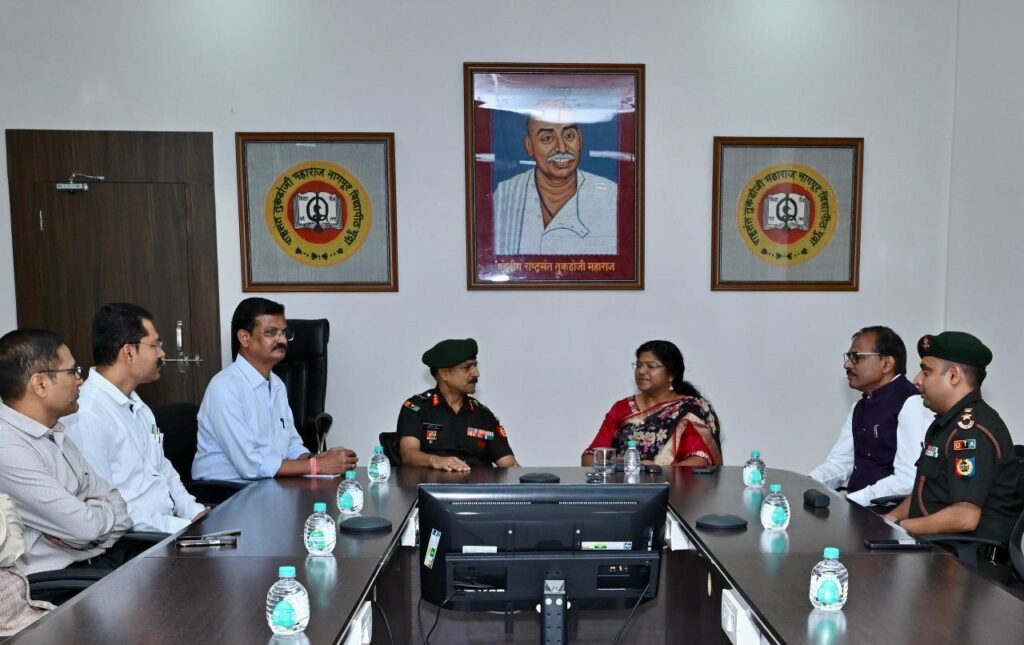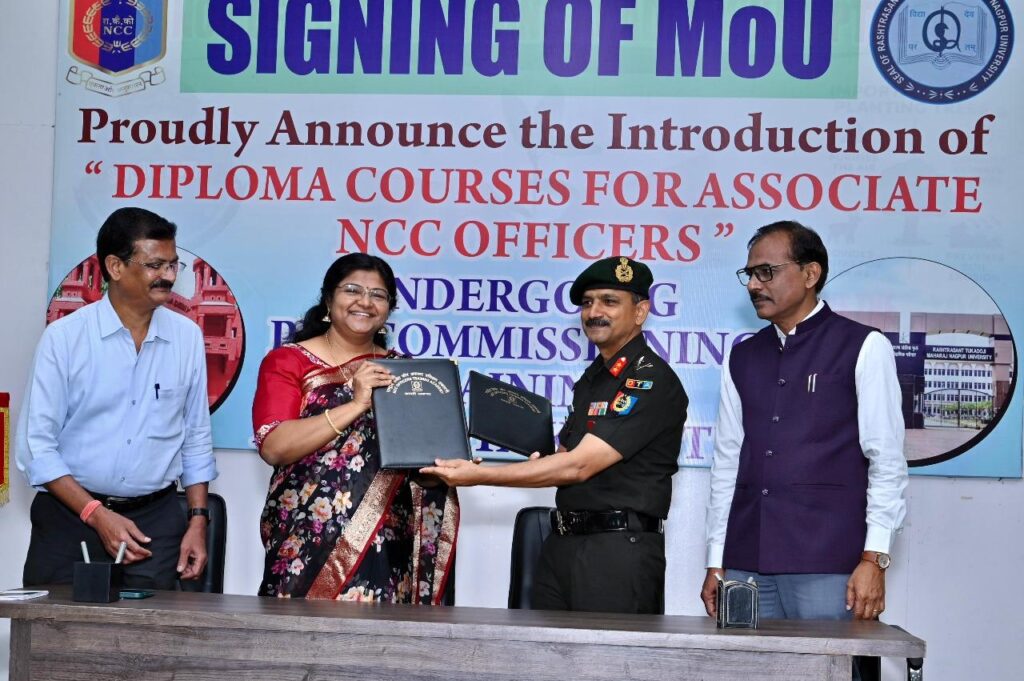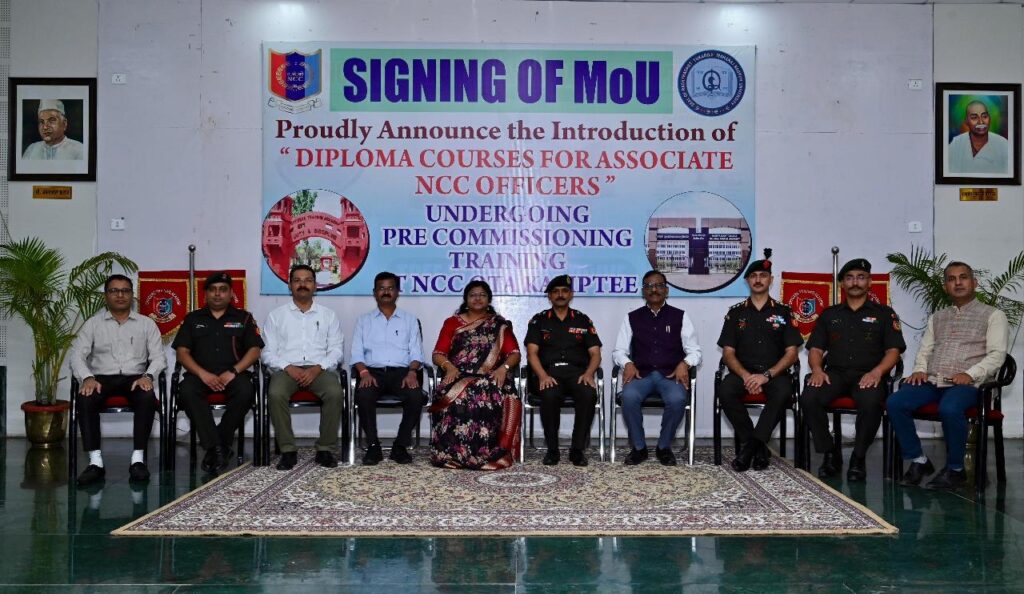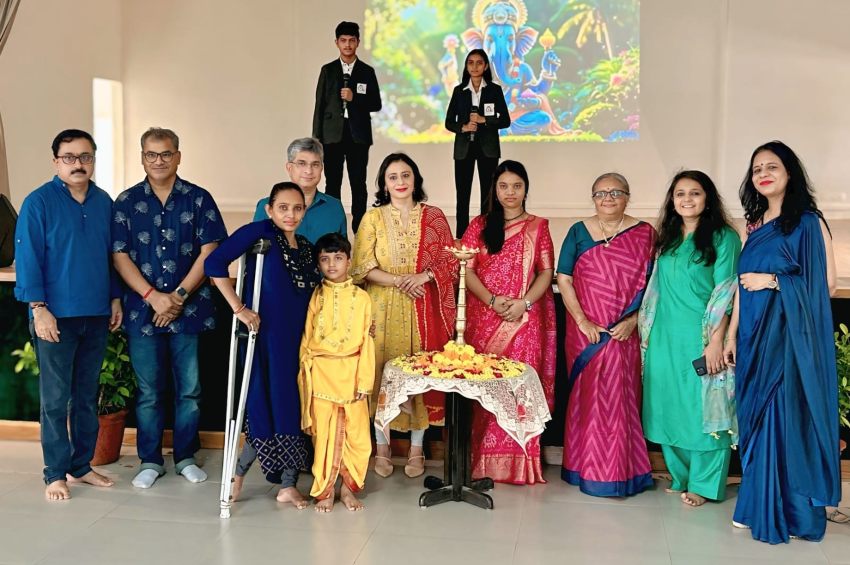In a big step towards combining military training with higher education, Rashtrasant Tukadoji Maharaj Nagpur University (RTMNU) and the NCC Officers Training Academy (OTA), Kamptee, have officially signed a Memorandum of Understanding (MoU) to introduce diploma courses for Associate NCC Officers (ANOs). The agreement was signed on July 8, 2025, and it marks the beginning of a formal academic journey for thousands of educators who train under the NCC framework.
I found this development significant because it shows how military-oriented training can be integrated into the academic system, giving proper recognition to the efforts of school and college teachers who act as ANOs. These officers play a key role in shaping the minds of NCC cadets across India, but until now, their training didn’t carry academic weight. This MoU gives their hard work proper certification, and as someone who values both education and civic responsibility, I believe this is an important story that needs to be highlighted.
What the RTMNU–OTA MoU Means for ANOs
The newly signed MoU is more than a formal agreement—it’s a step towards academic validation of leadership and national service training. Every year, more than 1,200 school teachers and college professors across India come to OTA Kamptee to undergo Pre-Commission training. Now, these same trainees will also receive diploma certificates issued by RTMNU, giving their training official academic value.

This diploma course is not just an added certificate—it serves multiple purposes:
- Recognises the leadership and civic duties of ANOs
- Encourages more educators to participate in NCC activities
- Helps in the professional growth of teachers, especially those involved in youth development
- Bridges the gap between defence training and formal education
The training at OTA Kamptee already includes modules on leadership, discipline, social service, and physical fitness. With the new academic partnership, these modules can now count toward a formal diploma. This not only boosts the CVs of trained teachers but also promotes a sense of achievement and professional pride.
Training to Be Recognised as Academic Qualification
The MoU was driven by the visionary leadership of Maj Gen Upkar Chander, Commandant of OTA Kamptee, and Dr. Madhavi Khode Chaware, I.A.S., Hon’ble Vice-Chancellor of RTMNU, along with their dedicated teams.
Each year, the initiative will enable over 1,200 school teachers and college professors from across India—undergoing training at the Academy—to receive diploma certificates issued by RTMNU. These educators, once trained, serve as ANOs guiding NCC cadets in educational institutions nationwide.

“This initiative adds academic weight to the leadership and national service training imparted to ANOs,” said a senior OTA official.
“We are proud to integrate the educational framework with national service, creating a more impactful training experience,” said an RTMNU spokesperson.
Impact on Education and NCC
This initiative reflects a shift in how we perceive NCC training. It’s no longer just about parade drills and camps. The MoU brings focus to the academic and leadership skills being taught, and more importantly, gives a formal structure to what was previously informal recognition.
RTMNU Vice-Chancellor Dr. Madhavi Khode Chaware and OTA Kamptee Commandant Maj Gen Upkar Chander played important roles in pushing this MoU forward. Their collaboration is a great example of how educational and defence institutions can work together for a larger goal.
For the NCC as an organisation, this collaboration helps attract more qualified ANOs and builds a stronger network of mentors for cadets. For the teachers, it’s a chance to gain a recognised academic qualification while contributing to the national cause.
A New Era for NCC’s Academic Integration
The certified diplomas not only acknowledge the rigorous training undertaken by ANOs but also elevate their role as nation-builders and youth mentors. It is expected that this academic recognition will draw more competent and qualified educators into the NCC fold, expanding its national network of role models and youth leaders.

This collaboration exemplifies the evolving vision of the National Cadet Corps (NCC) — not only as a premier youth organization fostering discipline and patriotism, but also as a platform for academic growth and professional development.
Key Features of the Diploma Initiative
- Diploma awarded by RTMNU for Pre-Commission training completed at OTA Kamptee
- Over 1,200 school and college educators to benefit annually
- Designed for ANOs who lead NCC units in schools and colleges
- Strengthens the educational value of NCC training
- A rare defence-university academic collaboration in India
Final Note
As someone who has seen the role of NCC in shaping confident and disciplined youth, I truly appreciate this step. It’s not just a formality; it’s recognition of the behind-the-scenes work that thousands of teachers do across India. With this MoU, we are not only supporting national service but also building a system that respects and rewards those who lead it.











